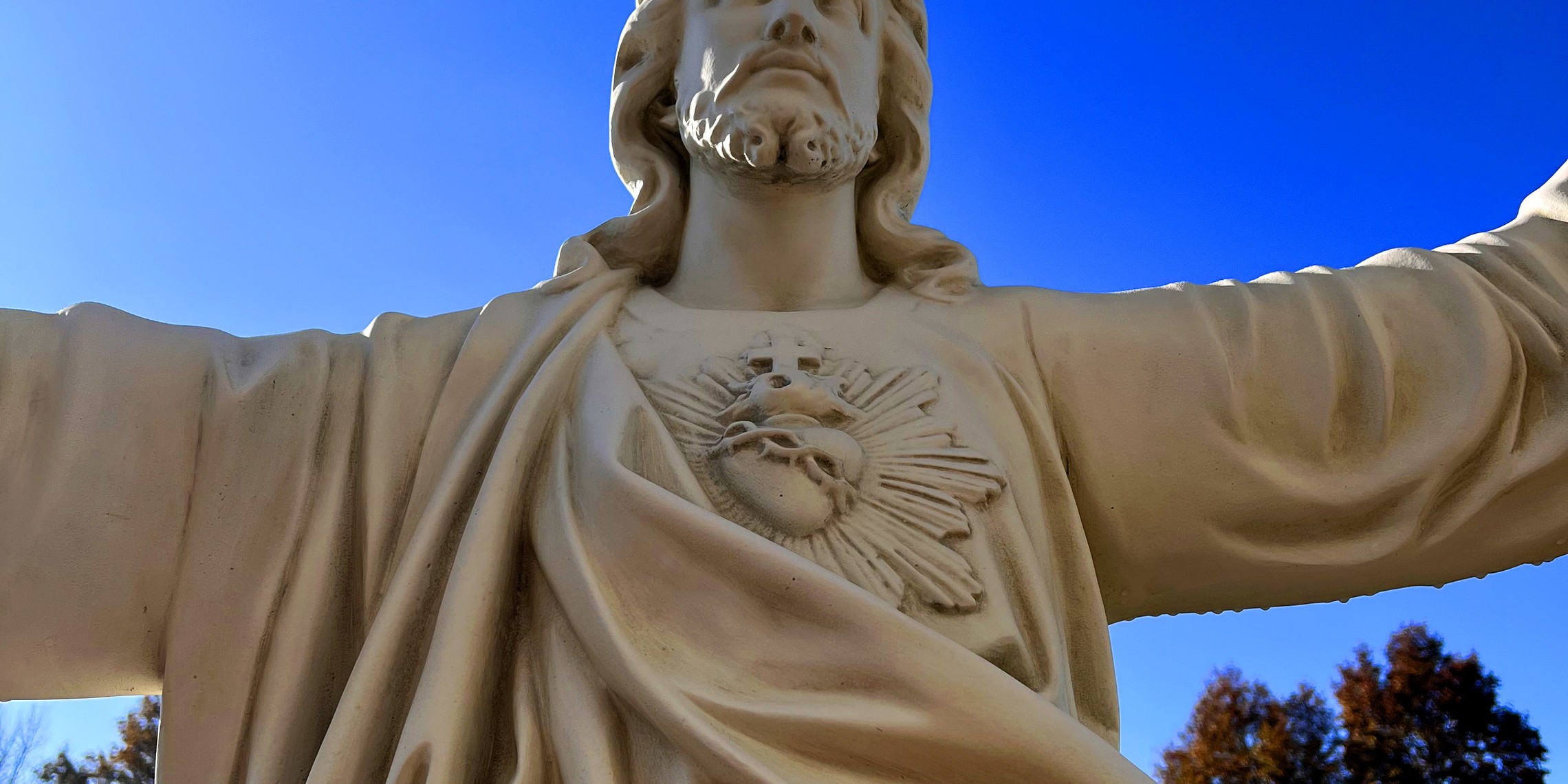December 8, 2021
In the RCIA, it is not unusual for a candidate to have their first Sacrament of Reconciliation when they are 30, 40, 50, 60, 70, or even 80 years old. That’s a lot of years to examine your conscience over. There are also many cradle Catholics that haven’t received the Sacrament for 10, 20, 30, 40, or even 50 years who have a long period of time to examine their sins. If you fall into this latter category, and you have no sense of urgency to get yourself into the confessional, let me share some of the reasons you should.
Sin is real. The devil is real. Our culture downplays the reality of sin…or worse, decides for itself what constitutes sin and what doesn’t. Being in a state of sin, even if it’s not mortal sin, leaves the door cracked open for the devil to worm his way into your thoughts and your actions. The devil’s number one goal is to separate you from God, plain and simple. There is a hell, and Satan wants you there with him. Slam the door in the devil’s face by going to confession.
“When God forgives a sinner who humbly confesses his sin, the devil loses his dominion over the heart he had taken.”
– Saint Bernard of Clairvaux
Sin harms your relationship with God and with our entire community. Even sins that are committed in private like pornography, hurt those around us. When you sin, you hurt the entire Body of Christ and when you are sorry and ask forgiveness in Reconciliation, you are reconciled with God and with your community. Think about your family or your workplace. If a spouse, child, or co-worker is feeling guilty and carrying the weight of sin, it affects everyone around them. One sin that really does damage in the community is gossip.
“Gossiping is like terrorism because the person who gossips is like a terrorist who throws a bomb and runs away… With their tongue they are destroying and not making peace.”
- Pope Francis
You can see the damage a bomb causes not only where it is detonated, but also in the shattered windows, bursts ear drums, and flying shrapnel all around it. Just like Adam and Eve’s sin broke their relationship with God, with each other and with God’s creation, so your sin affects everything around you.
God’s mercy is vaster than an ocean and it’s better to be forgiven here in the present than to stand in front of the judge who requires justice to be served at the end of your life. While we are on earth, Jesus said His mercy is infinite, and He wants nothing more than for you to receive it. Once you’re dead, it’s too late. No one can escape standing before Jesus and being asked for an accounting of his or her entire life. It’s so much better if you jump into the ocean of His mercy and drown in His forgiveness now than if you wash up on the beach like stinky seaweed entangled in your sins.
“Today the Lord said to me, Daughter (Saint Faustina), when you go to confession, to this fountain of My mercy, the Blood and Water which came forth from My heart always flows down upon your soul and ennobles it. Every time you go to confession, immerse yourself entirely in My mercy, with great trust, so that I may pour the bounty of My grace upon your soul. When you approach the confessional, know this, that I Myself am waiting there for you. I am only hidden by the priest, but I myself act in your soul.”
– Saint Faustina Kowalska
Confession gives you an opportunity to practice the virtue of humility. Let’s face it, it’s quite humbling to have to sit in front of another human being, even though the priest is in the person of Jesus and say out loud those things that you have done or failed to do that you are ashamed of and embarrassed by. When you regularly humble yourself and confess your sins, you exhibit more mercy toward others who aren’t perfect either. Your pride is slowly tamed through this Sacrament.
“The torrents of grace inundate humble souls. The proud remain always in poverty and misery, because My grace turns away from them to humble souls.”
--St. Faustina, Divine Mercy in My Soul
It’s cheaper than therapy.* Have you ever felt that “Catholic Guilt”? That’s really your conscience telling you something you have done is an offense against God. You know that because God designed you and He’s the one that gave you a conscience in the first place. Your conscience is a gift, but you also need to make sure that it is formed properly so that you know right from wrong in terms of Catholic teachings and not just society’s definition of right and wrong. That guilt burden can be lifted by years of counseling or by getting humble, saying you messed up and asking God to forgive you. Remember, confession is free.
It forces you to slow down and look at how you are living our life. Traveling at warp speed in a noisy world is “normal” in our culture. Sometimes you don’t slow down and take time to examine your life regularly unless you hit a crisis moment. Examining your conscience and taking an honest look at yourself in order to confess, moves you to conversion and repentance.
“One clue that you’re doing something wrong is when you start spending a lot of time trying to convince yourself that what you’re doing is right.”
- Crystalina Evert
It’s a clean slate for your soul. Confession gives your soul a spring cleaning. A clean slate lets you start fresh with God, your family, and your friends. Your sins are erased, and you can move forward without lugging baggage around.
“First, we invite sin into our house, then sin stays as a guest, and then sin makes us a slave.”
- Stanislaw Jerzy Lec (Polish/Jewish poet)
Your Confidentiality is guaranteed. The Seal of the Confessional forbids a priest to tell anyone your sins or to even tell anyone that you went to confession. You could share your sins with a friend to relieve your guilt, but there’s no guarantee that this friend won’t share something with someone else out of “concern” for you, out of gossip, or out of malice if your friendship should fall apart. The secrecy that protects what is said in confession outweighs any doctor-patient or attorney-client confidentiality.
Can. 983 §1. “The sacramental seal is inviolable; therefore, it is absolutely forbidden for a confessor to betray in any way a penitent in words or in any manner and for any reason.”
You get grace. Grace is God’s divine life within you. Think of it like God’s supernatural power flowing through your veins. If you are in mortal sin, you have no grace flowing in you, in fact, the Holy Spirit has exited the building – the building being you, yes you, the Temple of the Holy Spirit. The only way to get that grace flowing in you again is to go to confession. But then, there’s the bonus…you get the grace to help you overcome the sins you hate committing so much. Say you hate it when you curse. As soon as a curse word slips out of your mouth, you feel guilty and you know you’ve done wrong, but you go right back to it the next time something angers you. Grace received from confession helps you to catch yourself before you curse, it helps to close your mouth and hold your tongue. You can’t overcome sin on your own…. you need grace.
God is your Daddy, and you want to make things right with your Daddy! He loves you like the precious and beloved son or daughter you are. How can you disappoint a father who sees you as the apple of His eye? Through Reconciliation, Catholics know for certain that their sins are forgiven and don’t have any remaining doubts. You know we are right with the Father who loves you beyond measure.
So if you have excuses like….I don’t remember how to go to confession, I’m embarrassed to confess to Father and then see him on Sunday, I’m a good person, it’s not like I’ve murdered anyone or committed adultery, I’ve already apologized to the person I hurt, my sins are too big to be forgiven or whatever it is that keeps you out of the confessional, I say, it’s all excuses and the only person you are hurting is you.
“Be ashamed when you sin, not when you repent.”
- Saint John Chrysostom
On Dec. 9th from 2-8pm, we have two priests available continuously for the Sacrament of Reconciliation. Check the bulletin for our regular Reconciliation times as well.
Written by: Birgitt Hacker
*Confession heals the soul but is not a substitute for professional mental health therapy.
More News...
Tools for Building a Domestic Church
According to the Second Vatican Council’s Dogmatic Constitution on the Church: “The family, is so to speak, the domestic church.” (Lumen Gentium #11)...Read more
Divine Mercy Sunday
This liturgical year, on April 19, 2020, the Octave or Eighth Day of Easter, we celebrate the 20th anniversary of the initiation of Divine...Read more






